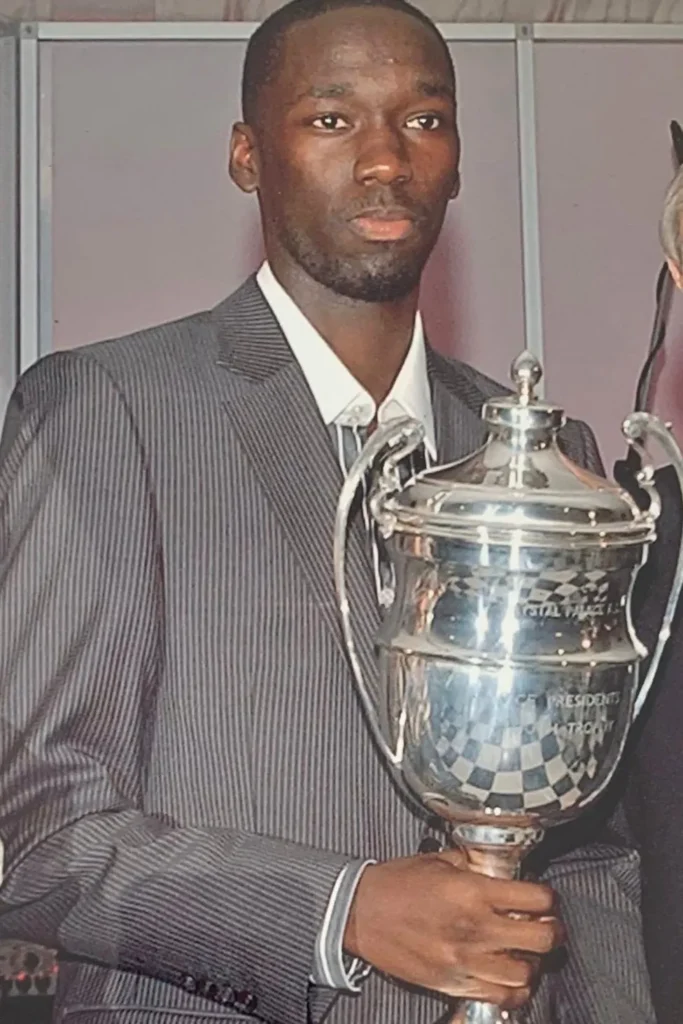The lift at the May Fair Hotel in central London squeaked softly as it reached its destination. When the doors opened, Moses Swebu was faced with a turning point in his life that changed everything he thought about football and himself.
Drunk on whisky cocktails for courage, Swebu walked down the plush, red-carpeted corridor to a room where a decision awaited – a decision that could either be his financial salvation or a betrayal of all the hard work he had put in. The air smelled of luxury, and the atmosphere felt as unreal as a movie set.

Inside that room, Swebu faced a crucial choice. He had been offered £60,000 to help rig a football match, and the gravity of the situation was clear. But by the time he got to the door, all hesitation had disappeared. He was ready to take the money, no matter what the cost.
Early struggles and ambitions
Moses Swebu’s journey began far from the grandeur of high-stakes meetings. Growing up in Croydon, south London, life was tough. After his parents separated, Swebu and his older brother were raised by their father, who enforced strict rules. School days ended at 3pm, but Swebu had to be home by 4:30pm or face a closed door until morning.
Often, he missed curfew, spent nights playing football and travelling around London’s night buses. He would sleep on staircases or stay at neighbours’ houses. Despite these hardships, Swebu’s love for football remained constant.
At the age of 16, Crystal Palace picked up Swebu. His talent shone through, earning him a youth contract and a place amongst promising players such as John Bostock and Victor Moses. At the age of 18, he was rewarded with awards including Young Player of the Year.
Downfall and temptation
Swabu’s rise was short-lived. Managers changed and new boss Neil Warnock did not see Swabu in his plans. After a loan period at Weymouth, Palace released Swabu. His professional career began to falter, leading to a move to Lincoln City and later Bromley in the National League South.
It was at Lincoln that Swabu first encountered match fixers. In January 2011, he and three of his teammates were offered £60,000 to fix a game against Northampton with Lincoln trailing 1-0 at halftime. They decided to reject the offer and keep quiet.
By August 2012, Swabu’s situation had worsened. Playing for Bromley, he was under a lot of pressure with a pregnant girlfriend. When the fixers approached again, offering £100,000 to lose a game 2-0 against Eastbourne, Svebu, desperate for money, agreed.
The fix was carried out during the match, and Svebu received his share of the bribe. The lure of making quick money and power, even if it led to confusion, became addictive. Svebu began acting as a middleman, organising fixings and managing a network of players.
Exposure and arrest
The widespread corruption in the National League South began to attract attention. Bookmakers noticed unusual betting patterns, with huge sums of money being wagered on lower-level matches. Investigations by Sportradar and subsequent actions by the Football Association revealed the extent of the fixing.
Svebu’s last fix with Bromley, which ensured a defeat to Maidenhead, was so obvious that his teammates noticed it. The situation reached a crisis point, and Svebu’s eventual involvement with the fixer was marked by growing suspicion.
In an attempt to take advantage of the naïve new fixer, Svebu planned a fake fix involving a League Two match. The plan failed when it became clear there was no fix. He was arrested after the meeting, realising too late that the syndicate was a sting operation by the National Crime Agency.
Redemption and new beginnings
After being sentenced to 16 months in prison for conspiracy to commit bribery in April 2015, Svebu had to face the consequences of his actions. A turning point came when he visited his young daughter in prison. Her innocence and unrequited love prompted Svebu to reevaluate his life.
After serving his sentence, Svebu began working with organisations such as FIFA and the Sport Integrity Global Alliance. His focus shifted to understanding and combating match fixing. Now he helps identify vulnerable individuals and protect the integrity of football.
The story of Moses Swebu is one of hardship, temptation and redemption. From a promising young talent to a man embroiled in match-fixing, Swebu’s journey highlights the challenges and complexities of professional sports. Today, he uses his experiences to make a positive contribution to the sport he once loved and lost.